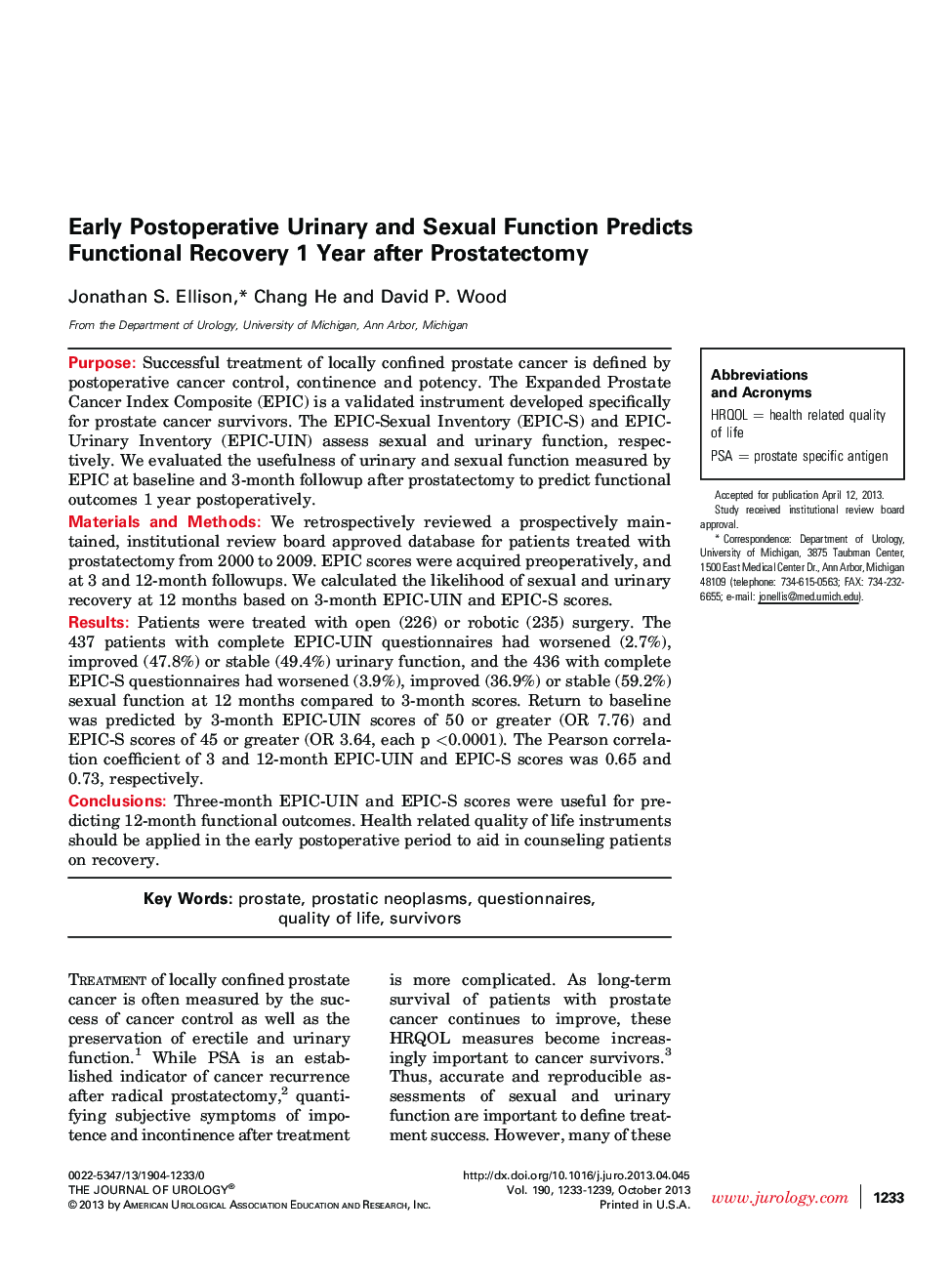| Article ID | Journal | Published Year | Pages | File Type |
|---|---|---|---|---|
| 3864138 | The Journal of Urology | 2013 | 7 Pages |
PurposeSuccessful treatment of locally confined prostate cancer is defined by postoperative cancer control, continence and potency. The Expanded Prostate Cancer Index Composite (EPIC) is a validated instrument developed specifically for prostate cancer survivors. The EPIC-Sexual Inventory (EPIC-S) and EPIC-Urinary Inventory (EPIC-UIN) assess sexual and urinary function, respectively. We evaluated the usefulness of urinary and sexual function measured by EPIC at baseline and 3-month followup after prostatectomy to predict functional outcomes 1 year postoperatively.Materials and MethodsWe retrospectively reviewed a prospectively maintained, institutional review board approved database for patients treated with prostatectomy from 2000 to 2009. EPIC scores were acquired preoperatively, and at 3 and 12-month followups. We calculated the likelihood of sexual and urinary recovery at 12 months based on 3-month EPIC-UIN and EPIC-S scores.ResultsPatients were treated with open (226) or robotic (235) surgery. The 437 patients with complete EPIC-UIN questionnaires had worsened (2.7%), improved (47.8%) or stable (49.4%) urinary function, and the 436 with complete EPIC-S questionnaires had worsened (3.9%), improved (36.9%) or stable (59.2%) sexual function at 12 months compared to 3-month scores. Return to baseline was predicted by 3-month EPIC-UIN scores of 50 or greater (OR 7.76) and EPIC-S scores of 45 or greater (OR 3.64, each p <0.0001). The Pearson correlation coefficient of 3 and 12-month EPIC-UIN and EPIC-S scores was 0.65 and 0.73, respectively.ConclusionsThree-month EPIC-UIN and EPIC-S scores were useful for predicting 12-month functional outcomes. Health related quality of life instruments should be applied in the early postoperative period to aid in counseling patients on recovery.
